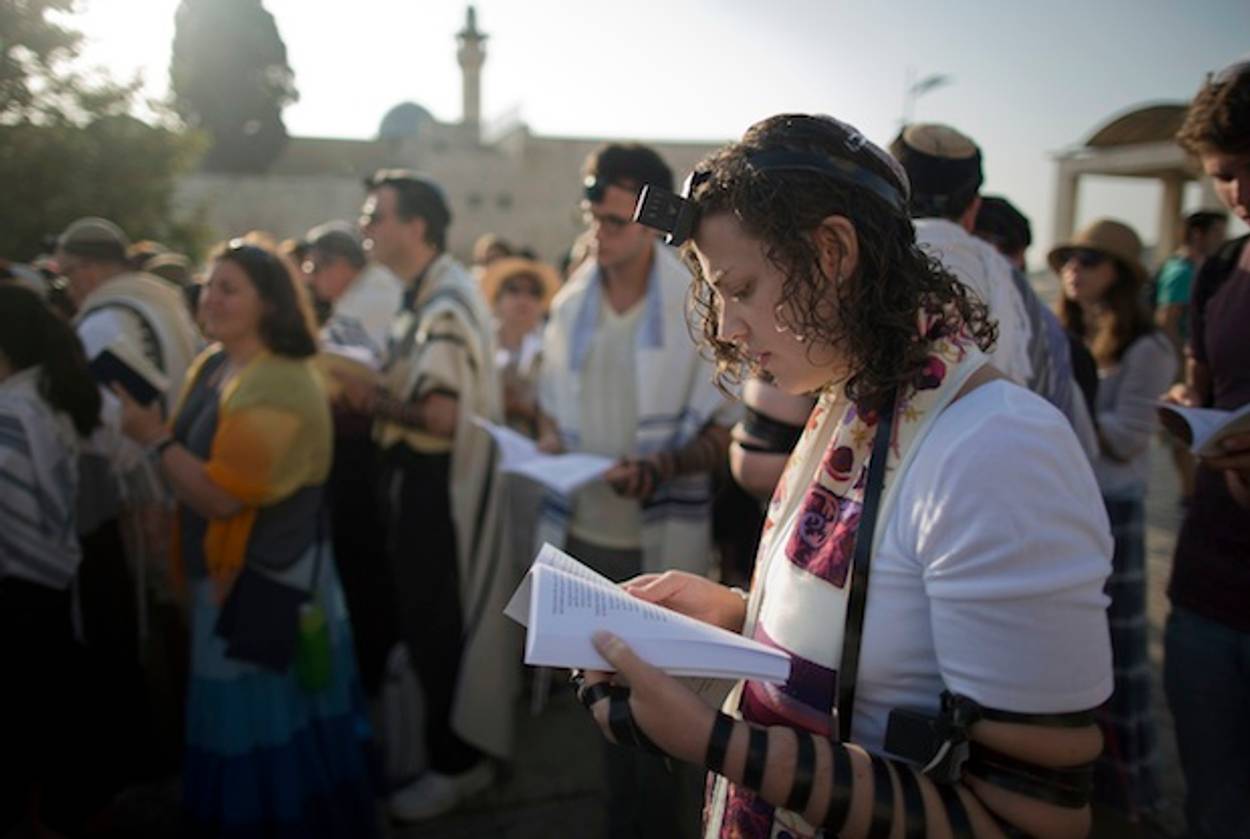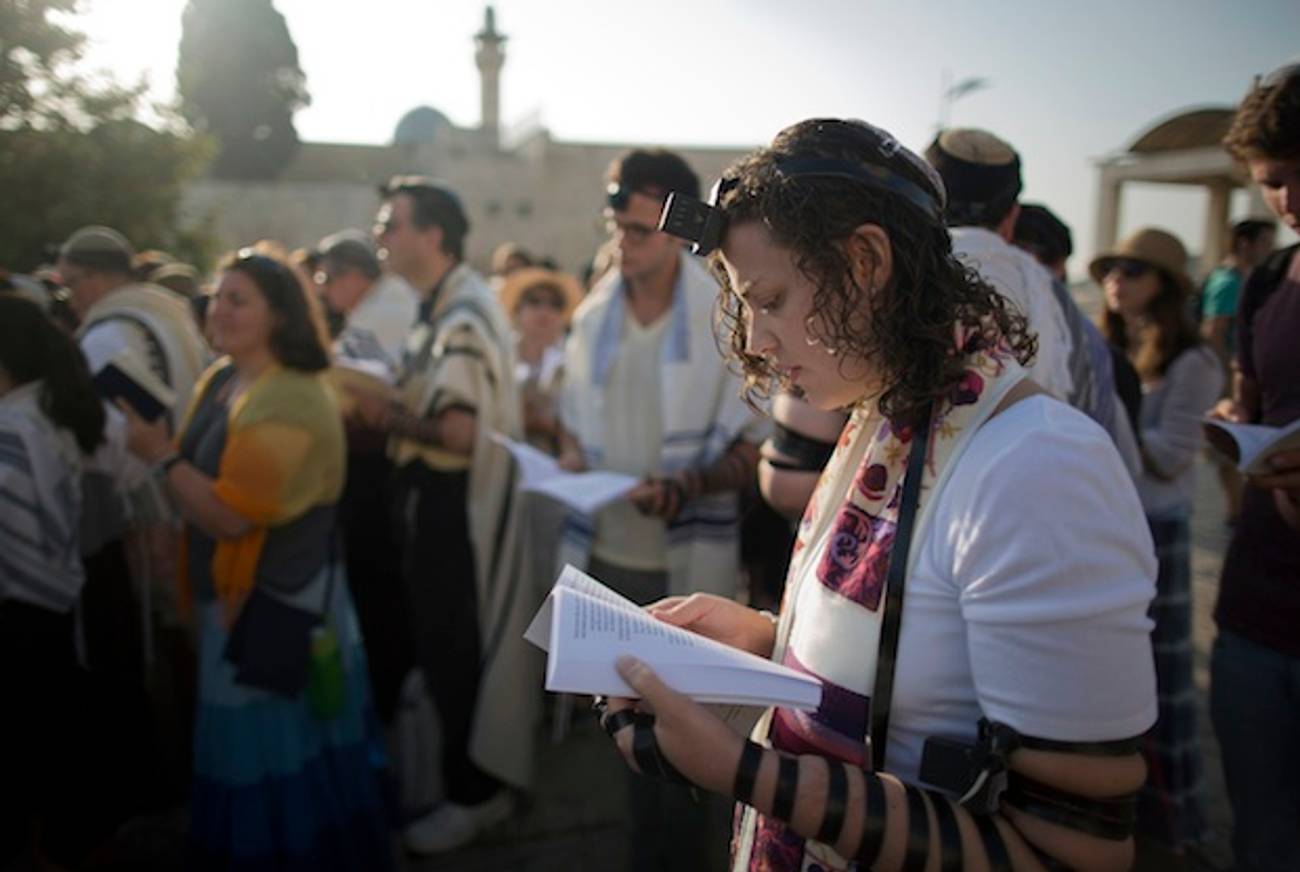On Tisha B’Av, Sadness and Reflection
For Women of the Wall supporters harassed last week, a day of solemnity




Tonight is Tisha B’Av, the mournful day in which we commemorate the destruction of the First and Second Temple, and the other Jewish tragedies that have historically fallen upon this date.
The nine days leading up to Tisha B’Av are supposed to be days of “solemnity,” explained Rabbi Sari Laufer in her blog, Torah Blahnik. Laufer describes her own sadness at her recent experience with the Women of the Wall on Rosh Chodesh Av. She said that the Haredi men who stormed the Kotel that morning were not sad, but angry.
It seems that the same cannot be said from the other side. It is not sadness that compels one Jew–one human being!–to call another Jew a Nazi. It is not sadness that sent a hard-boiled egg flying through the air as a projectile, landing solidly (and not comfortably) on my neck. And it is not sadness that raised male voices to drown ours out.
Laufer, distraught, spoke with a mentor who told her that their anger was rooted in the fear of change. But she felt comforted knowing that someone, a young boy or girl, might have seen the Women of the Wall that morning and understood that there are “new possibilities, a different way to live, a living and breathing Judaism.”
In response to last week’s incident at the Western Wall, Rabbi Michael Bernstein explored the role of sadness in Judaism, a religion in which joy is integral. He wonders, “Is there room for ‘sadness in holiness’ or even ‘holiness in sadness?’”
He came to understand that it is important to find the “sacred even in sorrow,” because sadness is a part of basic human emotion.
May we open our hearts to the full range of what makes us human and dedicate even our brokenness to the work of repairing the world.
In Tablet, Rebecca Klempner tells a personal story. Her family left Israel right after Tisha B’Av in 1979. What followed was a nasty divorce, a custody battle, and a lifetime longing to return to Israel, but she never made it there.
I still want to go to Israel. I’d love to slip a note between the stones of Western Wall, mingle in the crowds clustered there to pray, visit the landscape of the Tanakh. But after all these years in exile, after creating a new mikdash me’at in the United States, the urgency has waned. I believe G-d will eventually send our family to Israel—maybe when the Messiah comes, but hopefully before that. For now, I wait in my Temple in miniature.
Romy Zipken is a writer and editor at Jewcy. Her Twitter feed is @RomyZipken.